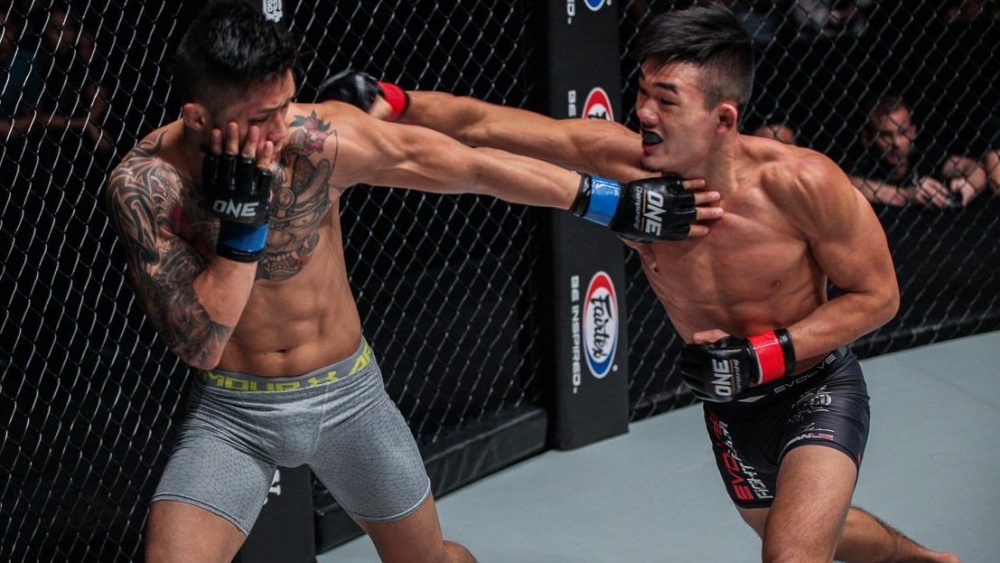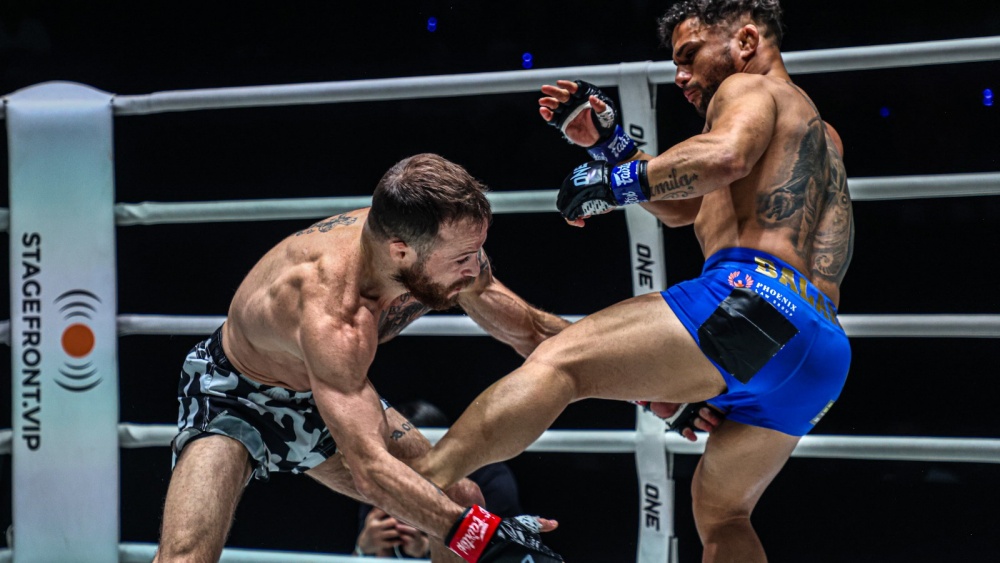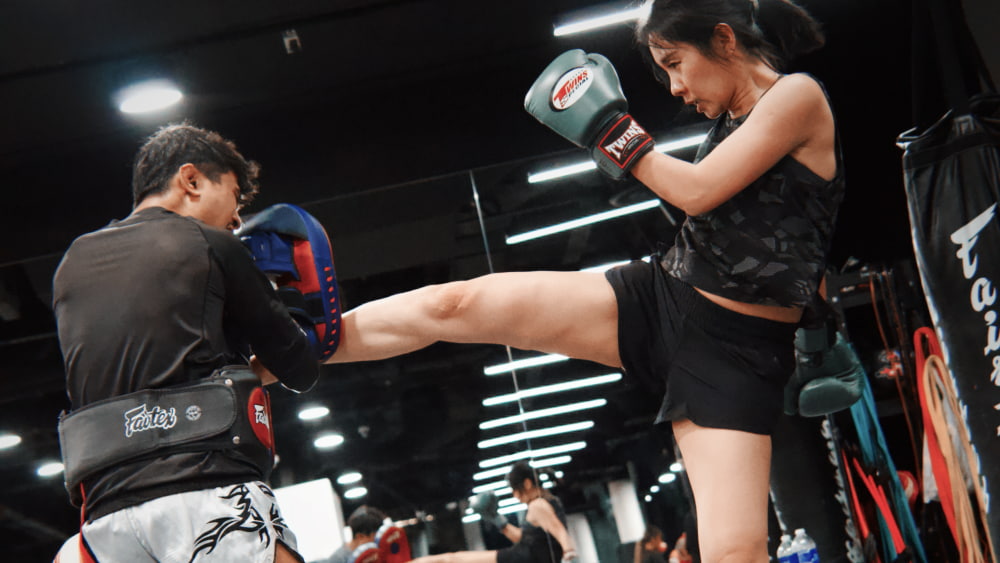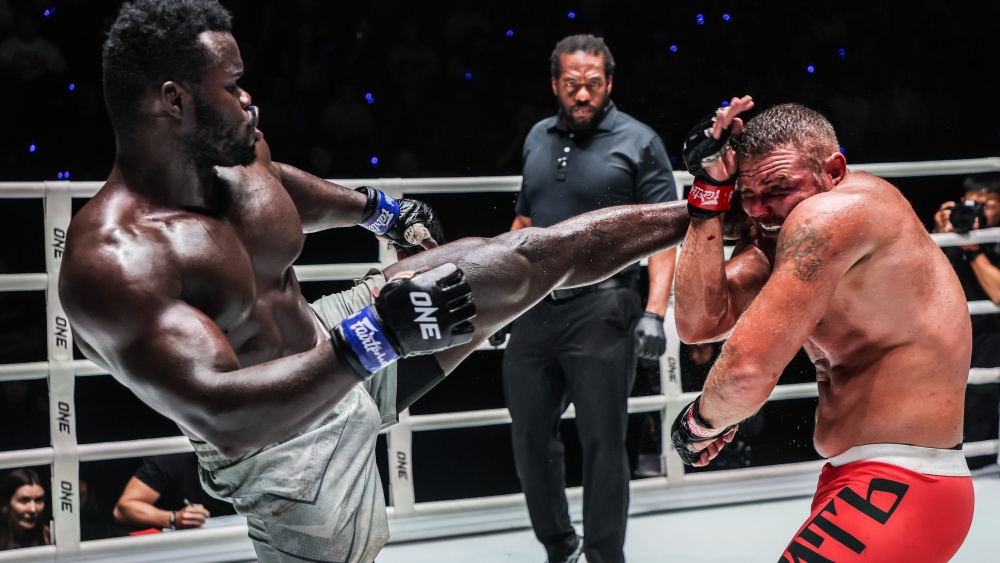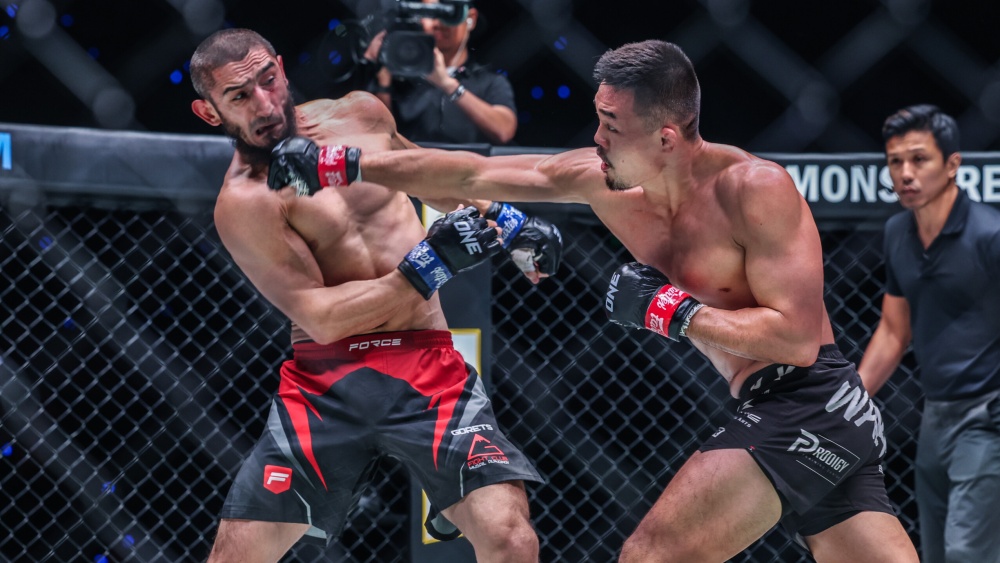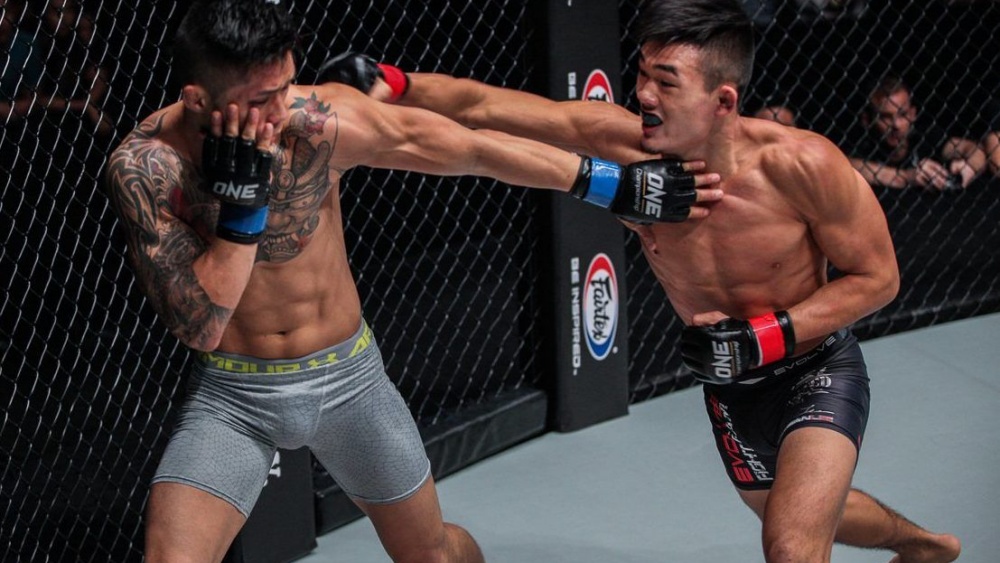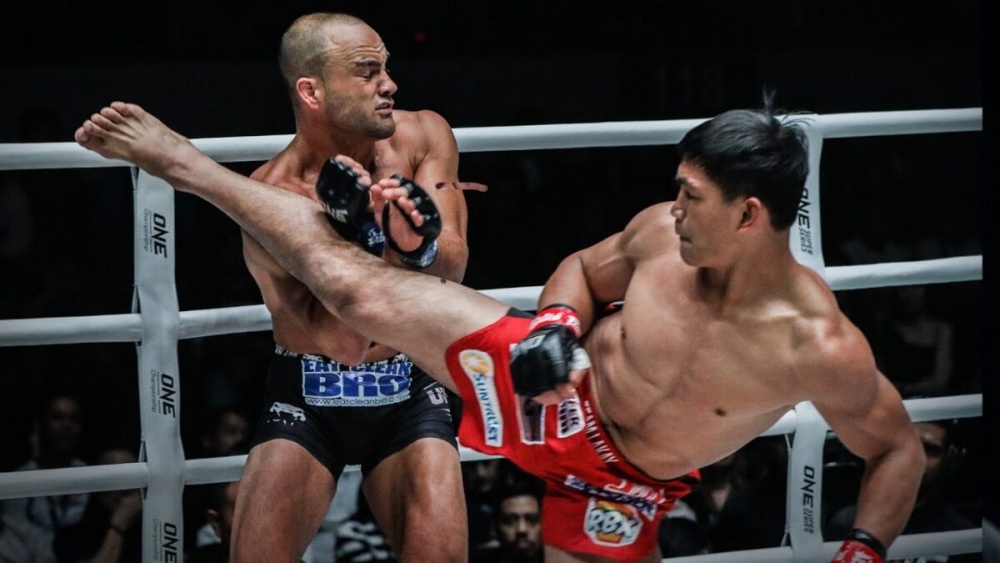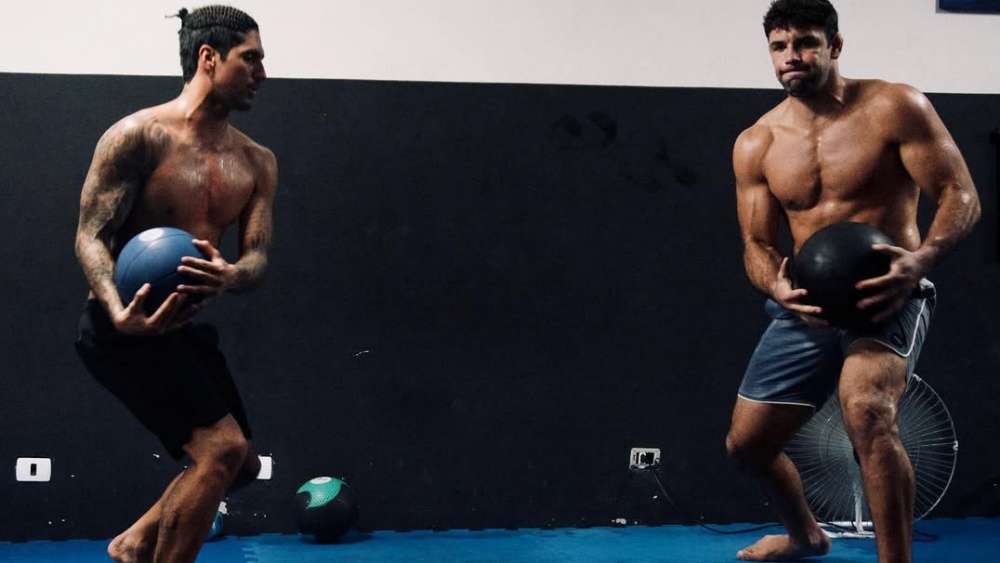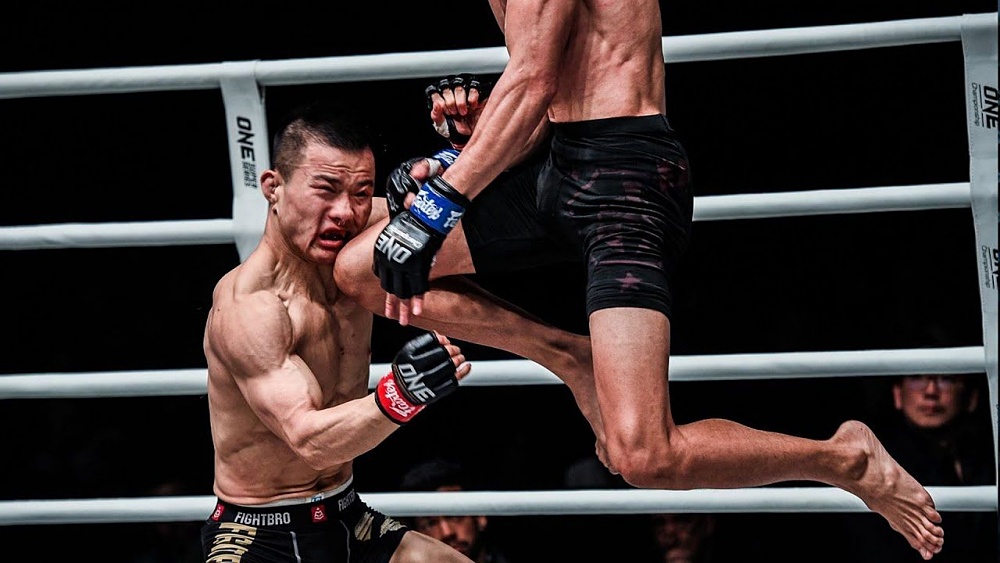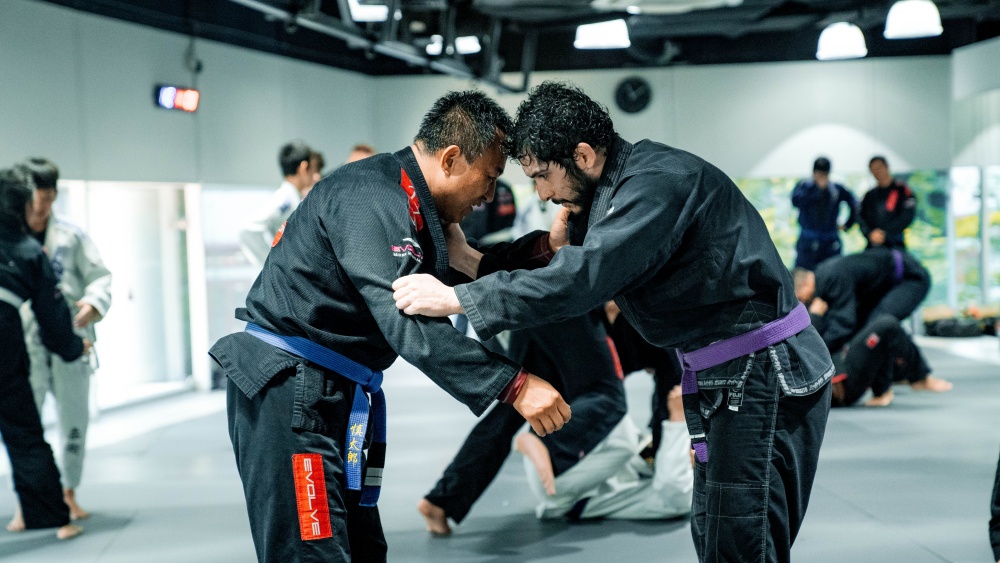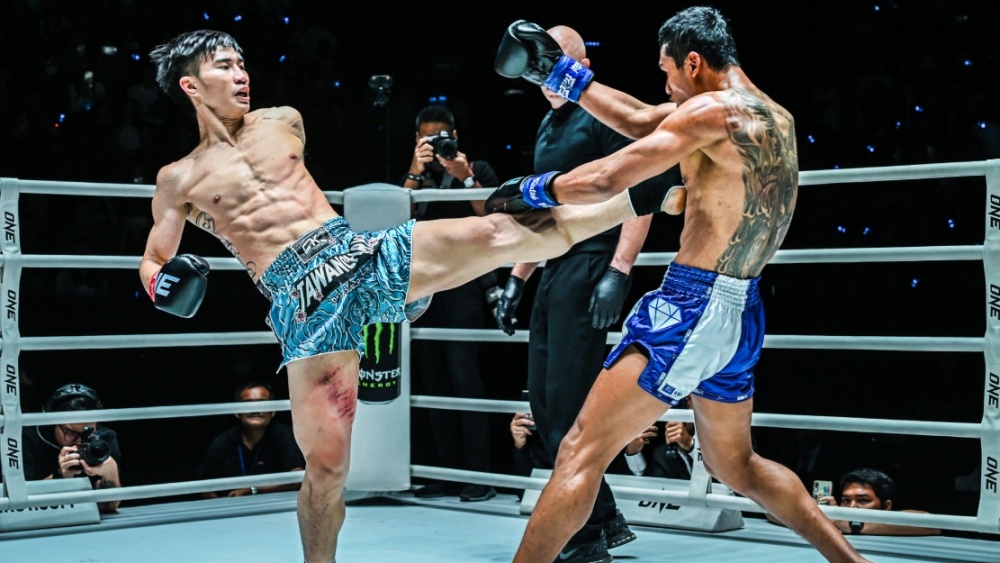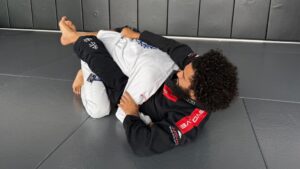Have you ever watched a mixed martial arts weigh-in and thought, “How the heck did that behemoth fit into that weight class yesterday?” or “Why is that fighter hugging a gallon jug of water like it’s a long-lost teddy bear?” Welcome to the wild world of weight cutting and hydration in MMA.
It’s a delicate tango, often danced on the edge of science, willpower, and sheer madness. So let’s dive deep into this curious realm of mixed martial arts to help you understand why it has become a major part of the sport despite the health risks it poses.
Shedding Pounds & Guzzling H2O: The Delicate Dance Of Weight Cutting And Hydration In MMA
Fighters are categorized by weight classes in mixed martial arts and many other combat sports like boxing. The idea is to ensure matches are fair and prevent fighters from enjoying considerable weight advantages against their opponents.
To make their planned weight classes for competitions, fighters often cut weight, a practice that involves temporarily shedding pounds in the days leading up to the official weigh-in. After the weigh-in, they’ll rehydrate and replenish to get back to their natural, fighting-fit weight. Sounds easy, right? Not so fast, hotshot.
The human body is made up of mostly water and fighters can lose anywhere from 5 to 11 kilograms of water weight leading up to their competitions. This means many fighters fight up to 11 kilograms above their natural walking weight. It’s a form of cheating really, but many involved in combat sports don’t see it like that since most mixed martial artists engage in the behavior.
ONE Championship is the only premier mixed martial arts organization that has taken substantial steps to help curb this practice by testing their fighters’ hydration levels during their weigh-ins.
Some of the tricks fighters use to lose water weight heading into their competitions include:
1) Saunas
Picture this: fighters wrapped in layers of clothing, trash bags (yes, trash bags), or sauna suits, sweating it out in an actual sauna. Sounds like a spa day gone horribly wrong, right? While saunas can help shed water weight, spending extended periods can be risky healthwise. Always remember kids: overdoing anything can be a bad idea.
2) Hot Baths
Some fighters opt for hot baths infused with Epsom salt, which can help draw out moisture from their bodies. It’s a less intense alternative to the sauna, but be warned—it’s not your typical bubble bath with rubber duckies and soothing lavender. Many MMA fighters describe cutting weight as the least favorable part of their profession.
3) Water Restriction
MMA fighters may limit water intake in the days leading up to their competitions, making them as dry as British humor. This process, called “water loading,” involves drinking lots of water (we’re talking more than your recommended eight glasses a day) and then suddenly cutting it off. The body, tricked into thinking there’s a water surplus, keeps expelling it. Sneaky, right?
4) Light Exercise
Some MMA fighters enjoy engaging in light cardio exercises like going at a moderate rate on an exercise bike while wearing a sauna suit. This promotes sweating, helping them to lose water weight without the discomfort associated with sitting inside a sauna for extended periods.
5) Rehydration
It’s time to rehydrate after successfully gaining weight and resisting the urge to dive into the nearest buffet. MMA fighters usually guzzle water, sports drinks, and baby food to replenish all the water and electrolytes they’ve lost. Some fighters even use IVs to rehydrate though many organizations have barred the practice due to potential unfair advantages and health concerns.
Rehydrating after losing water weight isn’t just about consuming liquids. Fighters also munch on potassium-rich foods like bananas and potatoes. Why, you ask? Potassium helps with muscle function and can prevent cramps during a fight. Imagine getting a Charley horse halfway through throwing a roundhouse kick!
Important Considerations When Weight-Cutting
Before considering weight cutting as a weekend experiment, it’s essential to approach it with caution. Improper weight cutting can result in dehydration, kidney damage, and severe electrolyte imbalances. It’s a serious undertaking and should only be attempted with expert guidance.
One of the primary concerns in rapid weight-cutting is severe dehydration. Fighters often use methods like saunas, sweat suits, and diuretics to shed water weight. Severe dehydration can impact nearly every system in the body, putting additional strain on the kidneys, potentially leading to kidney issues. Furthermore, dehydration thickens the blood, increasing the potential risk for heart-related complications.
Additionally, rapid weight loss can cause electrolyte imbalances. Electrolytes such as potassium, sodium, and calcium play a crucial role in bodily functions like muscle contractions and nerve function. An imbalance may result in muscle cramps, weakness, seizures, and heart arrhythmias.
Brain health is another consideration. Dehydration reduces the fluid surrounding the brain, diminishing its protective cushioning. This increases the risk of a concussion or brain injury during a fight, especially given the existing risks of head trauma in combat sports.
Beyond these acute risks, repeated cycles of rapid weight loss and gain can have long-term effects on metabolism, cardiac health, and overall physiological well-being. Yo-yo dieting can lead to nutrient deficiencies, a weakened immune system, and potential hormonal imbalances.
The Future Of Weight Cutting In Mixed Martial Arts
Given the risks, many folks in the MMA community are discussing alternatives. Some promotions have added more weight classes or day-of-fight weigh-ins to discourage extreme cuts. Others advocate for better education and safer weight management practices.
Weight Cutting Won’t Win You Fights
Lastly, for all you aspiring MMA fighters out there, remember that while weight-cutting might give you a temporary advantage, nothing beats skill, technique, and good old-fashioned grit inside the cage. Focus on honing your craft before you consider shedding pounds in record time.
Despite its risks, weight cutting and hydration in MMA are as much a part of the sport as flying knees and armbar submissions. It’s a complex science and art, with athletes constantly pushing the boundaries of what’s possible (and advisable).
You may also like:
